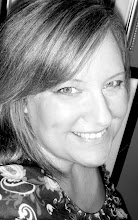While Advent is a season of waiting, it isn't a passive passage of time. The waiting is active, contemplative, and preparatory for opening our hearts and minds to God's great love. There is significance to this process as it relates to a reflective, listening season in which my church finds itself on the subject of homosexuality. Our denomination maintains a mandate of carrying on Christ's work. A small mainstream denomination, we are blessed with an ability to serve in large, world-affecting ways—groundbreaking involvement in fair-trade, disaster relief, and an influential model of volunteerism. My congregation can be seen as a microcosm of the whole—multigenerational, historically liberal as a peace church, but also traditional, and even, at moments, conservative. And we, like so many churches, are at a crossroads.
At the center of this junction, we find intersecting thoughts about interpretation of scripture. I am of the outlook that many biblical passages have contextual references, and that the writers of the Bible, though God-inspired, were not infallible—personalities and environs showed, an example being Pauline expressions about women in the ministry. I recall conversation with a dearly loved and respected family member about this—the belief that women should not be ordained. My response was heartfelt:
but what if I have a daughter who is called to and passionate for pastoral ministry? Another close-to-home “hot topic” in my family: remarriage after divorce. When my parents (one is my step-parent) married, the union was the subject of well-meant concern. By observation, in my own varied ecumenical experience, it appears that most churches, or church-goers, have moved past these contextual ideas about ordination and remarriage. Where many churches, including ours, are still deliberating: homosexuality, specifically regarding calling to ministry and blessing of commitments.
In my 20's (now 40's), I had a dear friend who came out and was subsequently treated negatively by some from the church we attended. It was a wonderful non-denominational church, but not without it's flaws, or flawed persons, as we all can be. The well-intentioned words said to my friend, were often misused or misunderstood scripture. Persons, were, in my opinion, being so heavenly-minded that they missed out on the truth of our highest calling: “to love God with all our hearts, and to love our neighbors as ourselves.” Christ said nothing about homosexuality, and yet, in an instant, a Christ-follower can reject another Christ-follower. Based on what? Interpretations of scripture. Just like use of scripture to justify slavery, or the repression of women, or even perpetuate the idea of a flat earth, religious texts can be used in damaging ways. At the time that scripture was written, it was widely viewed that homosexuality was a choice. We now have scientific references that show otherwise. Just as we know that the earth is round and that second marriages may be blessed unions, some things are learned from science, and sometimes relationships teach us even more.
Christ's words were most always relational, and as such, our greatest calling involves healing and restoration. If so, who needs attention most? I believe, it is those persons who've been wounded by the church's misuse or misunderstanding of scripture. May we mend hurting hearts. And may we also see time as a healer. Years later, the beloved persons who disagreed with my parents' marriage may have re-evaluated their thoughts when divorce and remarriage became realities in their families. Likewise, just this week, I heard a story about a prominent Christian educator who reexamined his long-held views on homosexuality and scripture when his grandson came out. When, over the course of time, we look at scripture relationally, we are no longer merely discussing ideas, we are caring for each other—our grandchildren, our neighbors, our friends. Like Advent, relationships change us. May our hearts be open to whatever God has in store.

